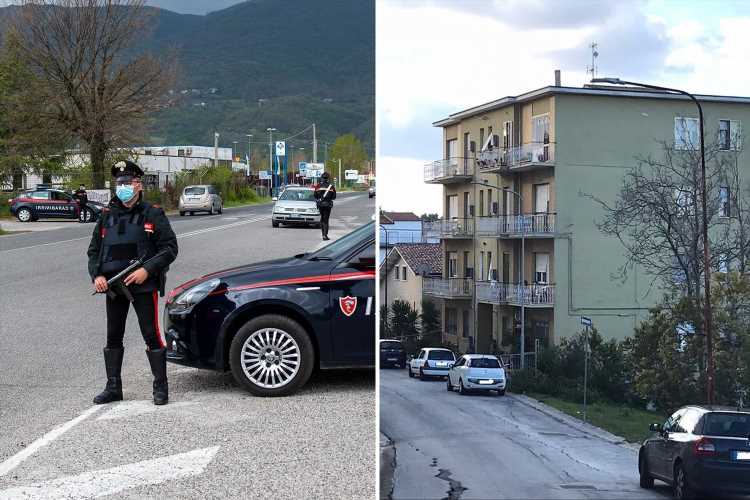US government scientists "insane" new project to hunt down 12,000 deadly viruses could spark another devastating pandemic, an expert has warned.
Researchers will collect and examine a whopping 800,000 samples of Covid, Ebola and Nipah in 12 countries in Africa, Asia and Latin America in order to make sure the world is "prepared" for another virus outbreak.
The US Agency for International Development has joined forces with a number of partners, including Washington State University, for the mammoth project – titled DEEP VZN.
Over the next five years, scientists will collect hundreds of thousands of samples from wild animals and use lab facilities in each country to "detect whether viruses are present in the samples".
The researchers aim to find 8,000 to 12,000 viruses around the world – but notably omitting China, the origin nation for Covid and SARS.
But Richard Ebright, biosafety expert, and professor of chemistry and chemical biology at Rutgers University, told The Sun Online the project is "insane" – and warned it could lead to another global pandemic.
He warned it continues risky work which may have lead to the Covid pandemic, with fears the research may have led to the bug escaping from the Wuhan Institute of Virology.
Prof Ebright explained how the samples from the animals will be "mass produced" and "used to infect cell cultures and laboratory animals".
In a chilling warning, he said the close contact between researchers and thousands of lethal pathogens could easily spark another virus outbreak.
He told The Sun Online: "Pathogen surveillance in wildlife is controversial among scientists and science policy specialists.
"The activity is costly, provides no actionable information useful for preventing pandemics, provides no actionable information useful for responding to pandemics.
"And, by increasing contacts between humans and potential pandemic pathogens in remote locations and bringing potential pandemic pathogens to laboratories in urban locations, poses risks of causing pandemics."
He added: "USAID's previous program of pathogen surveillance in wildlife failed, completely, to prevent the current pandemic and possibly caused the current pandemic.
It is foolhardy – indeed insane – to expand these high-risk, low-benefit activities
"USAID's new program of pathogen surveillance in wildlife doubles down on its previous failed bet failed bet – providing $125million – could cause a next pandemic.
"It is foolhardy – indeed insane – to expand these high-risk, low-benefit activities."
The researchers said the project aims to "build scientific capacity in partner countries to safely detect and characterise unknown viruses" which could spill over from animals to humans.
Felix Lankester, the lead principal investigator, said: "To make sure the world is better prepared for these infectious disease events, which are likely to happen more frequently as wild areas become increasingly fragmented, we need to be ready.
"We will work to not only detect viruses but also build capacity in other countries, so the United States can collaborate with them in carrying out this important work."
But despite mounting evidence pointing to a lab leak in Wuhan as the origin of Covid, China will not be included in the project.
THE QUESTION OVER CHINA
Researchers will only work in countries which have "a high risk for viral spillover", the "capacity to safely conduct viral discovery" and "a commitment to share information gathered through the project with global partners".
A spokesman for WSU told The Sun Online: "There are currently no plans for DEEP VZN to work in China… at this time China was not chosen."
USAID confirmed there are no plans for the researchers to work in China, citing safety concerns and "strict protocols" relating to biosafety.
A spokesman for the government agency said nearly 30 different criteria were used to decide which countries to work with.
He told The Sun Online: "USAID takes adherence to safety protocols and procedures by implementing partners very seriously.
"USAID staff overseeing the DEEP VZN project will work to ensure compliance with all safety protocols and procedures."
The Wuhan Institute of Virology (WIV) – a high security facility specalising in coronaviruses – has been in the eye of the storm as questions rage over whether Covid could have escaped from its lab.
Former intelligence chiefs and diplomats claimed the virus was leaked from the lab in the "cover up of the century" that is "worse than Watergate".
Both China and the lab have furiously denied any allegations, but top former intelligence bosses said the evidence of a lab "accident" is clear to see – and there has been a calculated cover up "from day one".
Evidence of a lab leak has been piling up over the last year as scientists, researchers and governments hunt for answers.
Sharri Markson's What really happened in Wuhan has uncovered a string of clues pointing to Beijing's "comprehensive well-thought-out" effort to hide the evidence.
And the bombshell new book said Covid appears to have been "tailor made for carnage" and may have escaped from the lab after a scientist was bitten by an infected monkey.
China has refused to cooperate with a full-scale probe into the origins and experts said the the cover up is continuing today.
We pay for your stories!
Do you have a story for The Sun news desk?
Email us at [email protected] or call 02077824104. You can WhatsApp us on 07423 720 250. We pay for videos too. Click here to upload yours
Click here to get The Sun newspaper delivered for FREE for the next six weeks.
Source: Read Full Article



